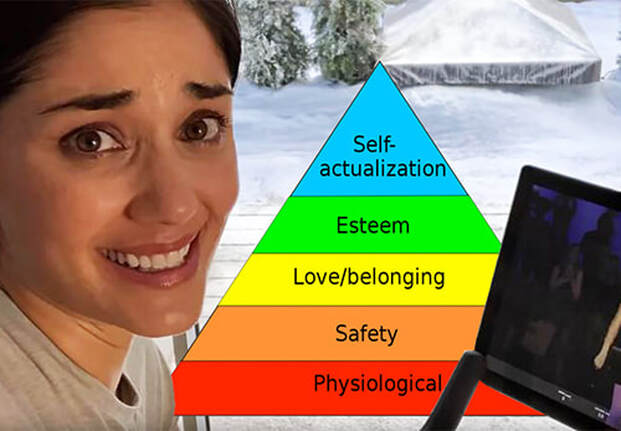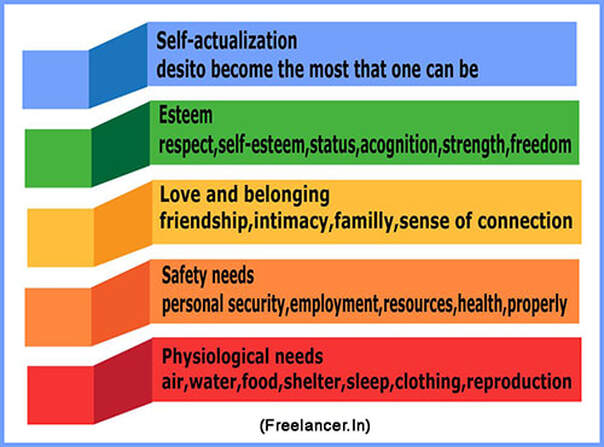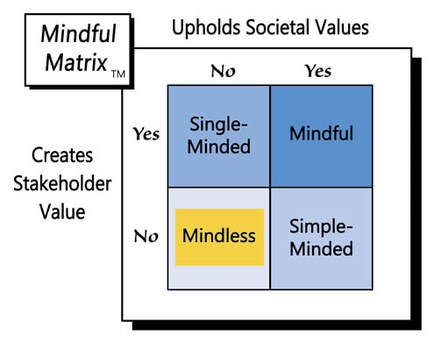Many reactions to the spot suggest that ‘no husband should surprise his wife with a piece of exercise equipment,’ regardless of her body-type. That’s a valid point; however, before dismissing Peloton’s ad as complete incompetence, Abraham Maslow’s classic hierarchy of needs may remind us that there is often more than one reason for riding a stationary bike:
- Physiological Needs: Exercise doesn’t satisfy hunger or thirst; in fact, burning calories increases those needs. Similarly, anyone ‘spinning’ isn’t resting; however, exercise can lead to better sleep. That connection proves true for many, as it did recently for me: After walking around New York City one day with family for hours, I enjoyed one of my best night’s sleep in months.
- Safety Needs: Exercise doesn’t immediately make us safe; however, cardiovascular fitness is an investment in long-term health, which connects to the second level of Maslow’s hierarchy. Many viewers of Peloton’s ad have bemoaned that “Grace in Boston,” an already slim woman, even needs to exercise, but they’re missing the point that working out isn’t just about losing weight. Thin people also reap health benefits from aerobic activity.
- Social Needs: In one tweet about the ad, a Peloton user mentioned that she appreciates the bonding that comes with working out with others. People don’t need to be physically present to build relationships. Social benefits can also accrue when interacting in the virtual realm, which apparently happens for at least some Peloton users.
- Self-Esteem Needs: All of us want to feel good about how we look and the kind of person we are. Sticking to an exercise regimen can bolster both of those self-concepts. Most viewers of Peloton’s ad don’t notice any physical change in Grace, but perhaps she experiences something intangible, like feeling more self-disciplined or self-confident.
- Self-Actualization Needs: There aren’t many products that can legitimately claim to help people reach their full potential in some significant area of life, but a piece of exercise equipment used seriously might produce such top-level benefits, partly like the way basic training transforms marines. We don’t know exactly what Grace meant by the statement, “A year ago, I didn’t realize how much this would change me,” but if it wasn’t physical change, maybe a year of Pelton transformed her mentally or emotionally.
The five levels of Maslow’s hierarchy offer consumers useful lenses for processing the controversial commercial. A psychological principle can also teach Peloton an important lesson, summed up in one sentence: “Perception is reality.”
We perceive when a stimulus crosses our senses, we attend to it, and we make an interpretation, for example: “The big dog bounding toward me looks dangerous.” Sometimes our interpretations are correct; other times they’re wrong. However, whether they’re accurate or not, our perceptions determine our reactions.
As thousands of social media posts have suggested, people perceived things to be true of Peloton’s ad that the company apparently didn’t intend, for instance:
- that Grace was initially overweight
- that she wanted to become even thinner
- that her husband pressured her to use the bike
Peloton can argue that these interpretations are incorrect, but ultimately the court of public opinion rules based on objective judgment of cues in the ad, prevailing social norms, and the broader cultural context, because perception is reality.
Some may suggest it was Peloton’s plan to cause a controversy that would capture publicity. If so, the company probably didn’t anticipate a 14% stock price decline in three days. Consumers can use Maslow to better understand what the cycle maker likely intended, but more importantly, companies like Peloton can learn to more effectively pretest their ads so corporate perceptions better align with consumer reality and don’t spin into “Mindless Marketing.”
Learn more about the Mindful Matrix and Mindful Meter.
Check out Mindful Marketing Ads and Vote your Mind!




 RSS Feed
RSS Feed